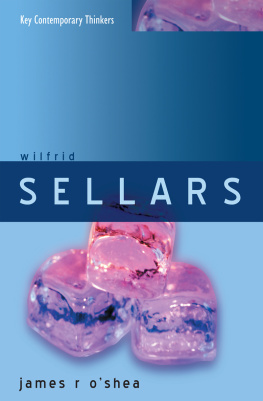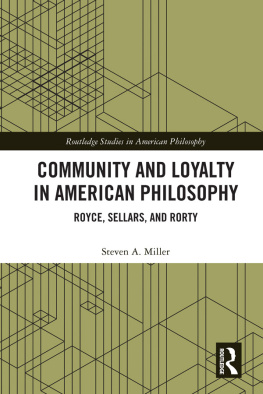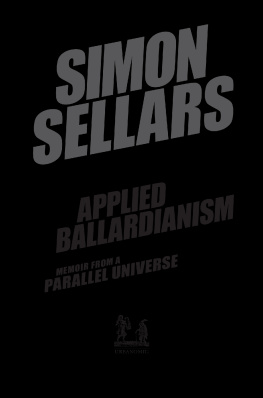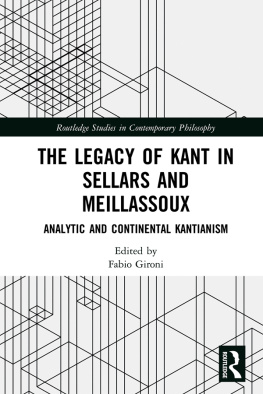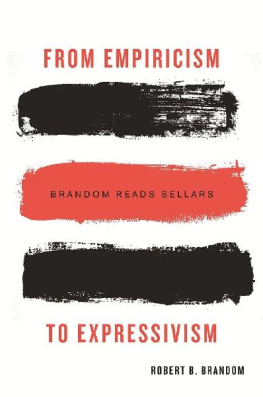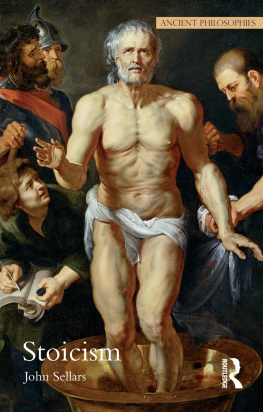
Dedicated to Karina
Copyright James R. O'Shea 2007
The right of James R. O'Shea to be identified as Author of this Work has been asserted in accordance with the UK Copyright, Designs and Patents Act 1988.
First published in 2007 by Polity Press
Polity Press
65 Bridge Street
Cambridge CB2 1UR, UK
Polity Press
350 Main Street
Malden, MA 02148, USA
All rights reserved. Except for the quotation of short passages for the purpose of criticism and review, no part of this publication may be reproduced, stored in a retrieval system, or transmitted, in any form or by any means, electronic, mechanical, photocopying, recording or otherwise, without the prior permission of the publisher.
ISBN-13: 978-07456-3002-1
ISBN-13: 978-07456-3003-8 (pb)
ISBN-13: 978-15095-0086-4 (epub)
ISBN-13: 978-15095-0085-7 (mobi)
A catalogue record for this book is available from the British Library.
The publisher has used its best endeavours to ensure that the URLs for external websites referred to in this book are correct and active at the time of going to press. However, the publisher has no responsibility for the websites and can make no guarantee that a site will remain live or that the content is or will remain appropriate.
Every effort has been made to trace all copyright holders, but if any have been inadvertently overlooked the publishers will be pleased to include any necessary credits in any subsequent reprint or edition.
For further information on Polity, visit our website: www.polity.co.uk
Key Contemporary Thinkers
Jeremy Ahearne, Michel de Certeau: Interpretation and its Other
Peter Burke, The French Historical Revolution: The Annales School 19291989
Michael Caesar, Umberto Eco: Philosophy, Semiotics and the Work of Fiction
M. J. Cain, Fodor: Language, Mind and Philosophy
Rosemary Cowan, Cornel West: The Politics of Redemption
Colin Davis, Levinas: An Introduction
Andreas Due, Deleuze
Maximilian de Gaynesford, John McDowell
Matthew Elton, Daniel Dennett: Reconciling Science and our Self-Conception
Simon Evnine, Donald Davidson
Chris Fleming, Ren Girard: Violence and Mimesis
Edward Fullbrook and Kate Fullbrook, Simone de Beauvoir: A Critical Introduction
Andrew Gamble, Hayek: The Iron Cage of Liberty
Nigel Gibson, Fanon: The Postcolonial Imagination
Graeme Gilloch, Walter Benjamin: Critical Constellations
Karen Green, Dummett: Philosophy of Language
Espen Hammer, Stanley Cavell: Skepticism, Subjectivity, and the Ordinary
Phillip Hansen, Hannah Arendt: Politics, History and Citizenship
Sean Homer, Fredric Jameson: Marxism, Hermeneutics, Postmodernism
Christopher Hookway, Quine: Language, Experience and Reality
Christina Howells, Derrida: Deconstruction from Phenomenology to Ethics
Fred Inglis, Clifford Geertz: Culture, Custom and Ethics
Simon Jarvis, Adorno: A Critical Introduction
Sarah Kay, ZiZek: A Critical Introduction
Douglas Kellner, Jean Baudrillard: From Marxism to Post-Modernism and Beyond
Valerie Kennedy, Edward Said: A Critical Introduction
Chandran Kukathas and Philip Pettit, Rawls: A Theory of Justice and its Critics
James McGilvray, Chomsky: Language, Mind, and Politics
Lois McNay, Foucault: A Critical Introduction
Philip Manning, Erving Goffman and Modern Sociology
Michael Moriarty, Roland Barthes
Stephen Morton, Gayatri Spivak
Dermot Moran, Edmund Husserl
Harold W. Noonan, Frege: A Critical Introduction
James O'Shea, Wilfrid Sellars
William Outhwaite, Habermas: A Critical Introduction
Kari Palonen, Quentin Skinner: History, Politics, Rhetoric
John Preston, Feyerabend: Philosophy, Science and Society
Chris Rojek, Stuart Hall
Susan Sellers, Hlne Cixous: Authorship, Autobiography and Love
Wes Sharrock and Rupert Read, Kuhn: Philosopher of Scientific Revolutions
David Silverman, Harvey Sacks: Social Science and Conversation Analysis
Dennis Smith, Zygmunt Bauman: Prophet of Postmodernity
Nicholas H. Smith, Charles Taylor: Meaning, Morals and Modernity
Felix Stalder, Manuel Castells: The Theory of the Network Society
Geoffrey Stokes, Popper: Philosophy, Politics and Scientific Method
Georgia Warnke, Gadamer: Hermeneutics, Tradition and Reason
James Williams, Lyotard: Towards a Postmodern Philosophy
Jonathan Wolff, Robert Nozick: Property, Justice and the Minimal State
Preface
Two decades after his death Wilfrid Sellars has once again become a much discussed philosopher on the contemporary analytic philosophical scene. Accordingly there is no apology needed for the present attempt to lay out clearly and to evaluate his overall views, especially since his writings present quite a challenge for the reader who is not already acquainted with his work. I have attempted to make Sellars' arguments accessible to upper undergraduate students in philosophy. Given the complexity of Sellars' views, however, I am reminded of the late Peter Strawson's remark in the Preface to his book Analysis and Metaphysics: An Introduction to Philosophy: The book, then, may fairly be described as introductory. But though it is introductory, it is not elementary. There is no such thing as elementary philosophy. There is no shallow end to the philosophical pool (Strawson 1992: vii). I have put a premium on attempting to produce a readable, gradually developing, and interconnected Sellarsian story, while also noting the main points at which Sellars' views are open to criticism. Given this purpose I have not been able to engage in extensive or detailed examination of the secondary literature, although the reader will find appropriate orientation in relation to those debates as well.
I can warmly recommend to the interested reader another introductory book on Sellars that has recently appeared: Willem A. deVries' Wilfrid Sellars (2005). Those who know deVries' work know that he is a sure hand in relation to the interpretation of Sellars. The reader will find differences of substance and style between our two books, but mostly, I believe, in a manner which renders them usefully complementary guides to Sellars' philosophy. Although I completed a full draft of the present manuscript before consulting deVries' book, throughout the process I have benefited from our email exchanges and from his encouragement of the present work, for which I thank him.
For bibliographical information, secondary sources, and other useful material, all students of Sellars are indebted to the Problems from Wilfrid Sellars website maintained by Andrew Chrucky (http://www.ditext.com/sellars/index.html). Among the most useful items on that website is Jay F. Rosenberg's (1990) Nachruf for Sellars, Fusing the Images (also available in Rosenberg forthcoming), an excellent brief overview of Sellars' philosophy. Another very useful secondary source on Sellars is Delaney et al. (1977), listed in the bibliography. Aune (1967) is also still well worth a look for clear Sellars-inspired investigations of a wide range of topics. Finally, a wealth of primary sources relating to Sellars is currently being made available by the helpful people at the Sellars Archive in the University of Pittsburgh Archives of Scientific Philosophy.
Next page
